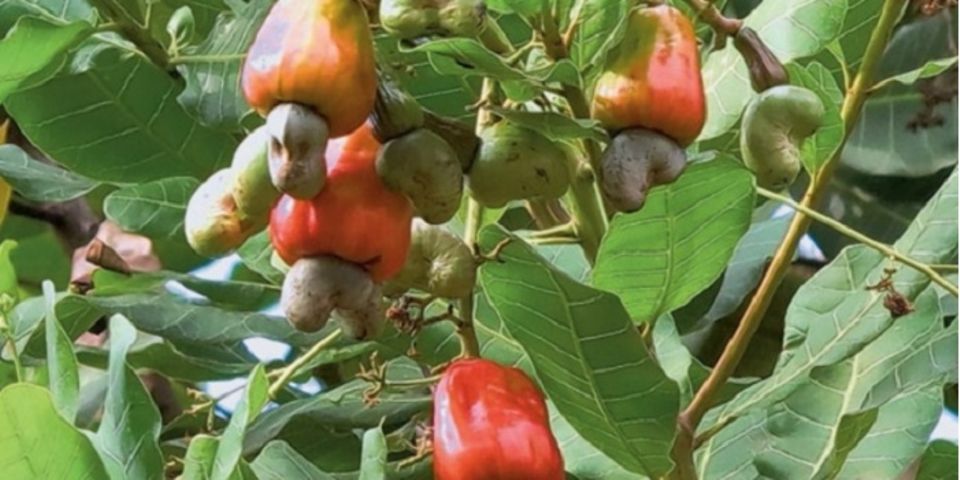- A number of factors are hindering Tanzania’s journey to make cashew its true cash cow.
- Cashew nuts account for an impressive 15 percent of the country’s annual forex earnings.
- Estimates show Tanzania contributes over 20 percent to the continent’s annual cashew nut supply, a remarkable feat by any measure.
Tanzania, a nation adorned with natural beauty and abundant resources, boasts a flourishing cashew nut industry that has long been a cornerstone of its economy.
Accounting for an impressive 15 percent of the country’s annual foreign exchange earnings, the cashew sector is undoubtedly a vital component of Tanzania’s economic landscape. Yet, amidst the lush orchards and the promise of prosperity, lies a story of unrealized potential. There are hurdles that the nation must overcome to harness the true power of its cashew bounty.
Ranked as Africa’s fourth-largest cashew producer, Tanzania contributes over 20 percent to the continent’s annual cashew nut supply, a remarkable feat by any measure.
Despite these impressive statistics, Tanzania finds itself trailing behind the likes of Nigeria, Cote D’Ivoire, and Guinea-Bissau in transforming this lucrative crop into a thriving economic engine. A closer look reveals that a combination of factors are hindering Tanzania’s journey to make cashew its true cash cow.
Challenges and opportunities
Experts point to a lack of effective regulation and unreliable payments to farmers as core challenges straining Tanzania’s cashew industry. The discrepancy between potential and reality becomes glaring when comparing Tanzania’s cashew production with that of Guinea-Bissau, a country a fraction of its size.
The cultivation of cashew nuts has become concentrated in southern coastal regions, with dated farming practices that originated even before independence. The Cashewnut Board of Tanzania oversees the sale and marketing of these cashew nuts, adding another layer of complexity.
One of the pressing issues is the fact that over 90 per cent of Tanzania’s cashew nut exports are in their raw form. This approach deprives the country of significant foreign revenue and job opportunities.
At the moment, the country has only four major cashew nut processors. Korosho Africa has plants in Tunduru, Newala, and Mtwara and processes about 2500 tonnes per year.
Mohammed Enterprises in Dar es Salaam handles 2,000 tonnes per year. Another major cashew nut processor is Olam Tanzania Limited in the southern region of Mtwara that processes a little over 500 tonnes per year. Finally, you have Hawte in Mtwara which handles about 200 tonnes per year. Plans are underway to revive in Newala, Masasi, Lindi, and Nachingwea cashew nut plants.
To remedy this situation, Tanzania must attract foreign investment to establish a robust cashew nut processing industry within its borders. This would not only create jobs but also enable the nation to capture a greater share of the value chain.
“We are trying to attract investors in the processing of cashew nuts in Tanzania and allow small farmers to sell their little produce on time,” notes Cashewnut Board of Tanzania director-general Alfred Francis.
Turning geographical advantage into economic gain
Remarkably, Tanzania enjoys a competitive edge on the global cashew market due to its harvest timing during the off-season. This strategic advantage allows Tanzanian cashews to fetch higher market prices compared to their counterparts from India and West Africa.
The nation’s fertile soils and favorable weather conditions contribute to producing large-sized cashew nuts with high natural yields per hectare.
However, the journey from harvest to market is fraught with challenges. The absence of a standardized grading system, for instance, often compels farmers to sell their produce at lower prices, leading to losses.
The lack of sorting and grading also increases transportation costs and contaminates good nuts with bad ones. This vicious cycle, further exacerbated by the lack of domestic processing facilities, deters farmers from continuing cashew production.
Also Read: Inside Tanzania’s plan to plant 1.5 million cashew trees
Seizing the opportunity for transformation
Despite the obstacles, Tanzania’s government is not blind to the industry’s potential. The revival of processing plants and the introduction of the ‘primary marketing system’ signals the nation’s determination to unlock cashew nut processing capacities.
Through this system, licensed local processors are encouraged to buy raw cashew nuts from cooperatives. In doing so, the government aims to increase raw cashew nut production to 700,000 tonnes by the 2025/26 season.
This strategic shift toward local processing holds promise for broadening the market and transforming the industry’s landscape.
The success of this initiative hinges on the ability to attract investment and create an environment conducive to growth. By offering special privileges to investors and addressing regulatory challenges, Tanzania can invigorate its cashew processing sector. The vision is to not only elevate economic prosperity but also empower small-scale farmers, provide jobs, and secure a brighter future for generations to come.
As the Tanzanian cashew story unfolds, it is evident that beyond its current challenges lies a realm of possibilities. With thoughtful planning, strategic investments, and a united effort from all stakeholders, Tanzania can indeed convert its cashew potential into a bountiful source of economic growth and prosperity.
The journey to making cashew truly the nation’s cash cow has begun, and the stakes are high as Tanzania positions itself to take its rightful place as a leading cashew producer on the global stage.
